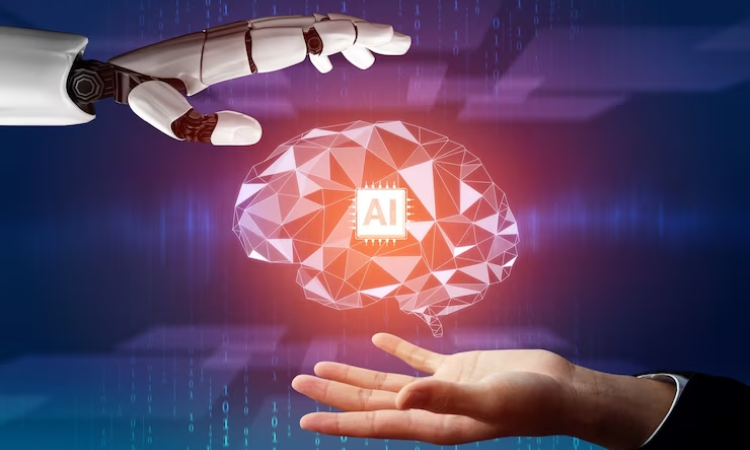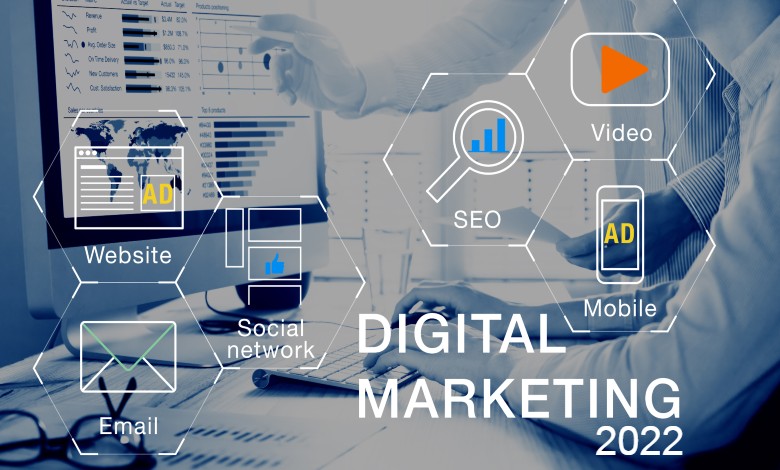I. Introduction
The field of AI is all about creating machines that can do things that usually need human intelligence to accomplish. It involves the study of various aspects such as machine learning, natural language processing, computer vision, and robotics. Over the years, AI has made significant advancements and is now poised to revolutionize technology and marketing.
A. Definition of Artificial Intelligence (AI)
AI, which is short for Artificial Intelligence, is the process of creating machines that are able to think and learn like humans, essentially simulating human intelligence. It involves the development of algorithms and models that enable computers to perform tasks such as speech recognition, problem-solving, decision-making, and pattern recognition.
B. Historical Overview of AI
The concept of AI dates back to ancient times, with early references found in Greek myths and legends. However, the modern field of AI emerged in the 1950s with the development of the first electronic computers. Scientists and researchers began exploring the idea of creating machines that could exhibit intelligent behavior.
C. Importance of AI in Technology and Marketing
AI plays a crucial role in advancing technology and transforming various industries, including marketing. It enables businesses to automate processes, gain insights from large datasets, and deliver personalized experiences to customers. With the increasing availability of data and computational power, AI has the potential to reshape the future of technology and marketing.
II. Applications of AI in Technology
AI has found widespread applications across various domains of technology. Let’s explore some of the key areas where AI is making a significant impact.
A. AI in Robotics and Automation
1. Industrial Robots
Industrial robots powered by AI are revolutionizing manufacturing and production processes. These robots can perform repetitive tasks with precision and efficiency, leading to increased productivity and cost savings for businesses.
2. Autonomous Vehicles
AI is at the core of self-driving cars and autonomous vehicles. Advanced sensors, machine learning algorithms, and real-time data analysis enable these vehicles to navigate roads, detect obstacles, and make intelligent driving decisions.
3. Personal Assistants and Chatbots
Personal assistants and chatbots, such as Siri, Alexa, and Google Assistant, utilize AI to understand and respond to user queries. They can perform tasks, provide recommendations, and engage in natural language conversations, enhancing user convenience and accessibility.
B. AI in Healthcare
The healthcare industry has witnessed significant advancements with the integration of AI technologies.
1. Disease Diagnosis and Treatment
AI algorithms can analyze medical images, such as X-rays and MRIs, to assist doctors in diagnosing diseases accurately. AI systems can also suggest treatment plans based on patient data and medical literature, improving the overall efficiency of healthcare delivery.
2. Drug Discovery and Development
AI-powered tools are accelerating the drug discovery process by analyzing vast amounts of data and identifying potential candidates for drug development. This technology has the potential to revolutionize the pharmaceutical industry, leading to the discovery of new and more effective treatments.
3. Patient Monitoring
AI-enabled wearable devices and monitoring systems can track vital signs, detect anomalies, and alert healthcare providers in real-time. This proactive approach to patient monitoring helps in the early detection of health issues and improves patient outcomes.
C. AI in Finance
The financial sector is leveraging AI to streamline operations, enhance decision-making, and improve customer experiences.
1. Fraud Detection and Prevention
By analyzing vast amounts of financial data, AI algorithms can identify patterns and anomalies connected to fraudulent activities. By identifying suspicious transactions and behaviors, AI-powered systems help financial institutions prevent fraud and protect their customers.
2. Algorithmic Trading
AI-driven algorithms are increasingly being used in financial markets for automated trading. With little assistance from humans, these algorithms analyze market data, spot trends, and carry out trades. This improves trade execution speed and accuracy, leading to better investment outcomes.
3. Personalized Banking Services
AI enables banks to offer personalized services based on individual customer preferences and financial behavior. Chatbots and virtual assistants powered by AI can provide real-time assistance, answer queries, and help customers manage their finances more effectively.
III. Impact of AI on Marketing
The integration of AI into marketing strategies has revolutionized the way businesses understand and engage with their customers. Let’s explore how AI is impacting various aspects of marketing.
A. Data Analysis and Insights
1. Predictive Analytics
AI algorithms can analyze large datasets and identify patterns that help predict customer behavior and preferences. By utilizing this technology, businesses can predict the needs of their customers, tailor marketing campaigns to individuals, and efficiently allocate resources.
2. Customer Segmentation
AI-powered tools can segment customers based on various attributes and behaviors. By understanding customer segments, businesses can create targeted marketing strategies that resonate with specific audiences, leading to higher conversion rates and customer satisfaction.
3. Sentiment Analysis
AI techniques, such as natural language processing, enable businesses to analyze customer sentiment from social media posts, reviews, and customer feedback. This information helps in understanding customer opinions, identifying emerging trends, and adapting marketing strategies accordingly.
B. Personalization and Customer Experience
1. Recommendation Systems
AI-powered recommendation systems analyze customer data and provide personalized product recommendations. By understanding individual preferences and purchase history, businesses can deliver tailored suggestions that enhance the customer experience and drive sales.
2. Chatbots and Virtual Assistants
AI-driven chatbots and virtual assistants provide instant support and information to customers. These AI-powered agents can handle a wide range of customer queries, provide recommendations, and assist in the purchase process, improving overall customer satisfaction.
3. Dynamic Pricing
Businesses can use AI algorithms to adjust prices in real-time according to factors like demand, competition, and customer behavior. This personalized pricing strategy helps maximize revenue while offering competitive prices to customers.
C. Automation and Efficiency
1. Campaign Optimization
AI-powered tools can automate the optimization of marketing campaigns by analyzing data, identifying trends, and making data-driven decisions. This improves campaign performance, reduces manual effort, and increases ROI.
2. Content Creation and Curation
AI technologies, such as natural language generation, can automatically generate content based on predefined parameters. This helps businesses create personalized content at scale, saving time and resources. AI can also assist in content curation by analyzing vast amounts of content and recommending relevant pieces to target audiences.
3. Social Media Management
AI tools simplify social media management by automating tasks such as content scheduling, sentiment analysis, and social listening. These tools help businesses monitor brand reputation, engage with customers, and optimize social media strategies.
IV. Challenges and Ethical Considerations in AI
While AI offers tremendous opportunities, it also poses challenges and raises ethical considerations that need to be addressed. Let’s discuss some of the key challenges associated with AI.
A. Data Privacy and Security
1. Collection and Storage of Personal Data
For AI systems to work well, they require a large amount of data. However, the collection and storage of personal data raise concerns about privacy and security. Businesses must ensure proper data governance, consent management, and secure storage practices to protect user information.
2. Cybersecurity Risks
AI-powered systems can be vulnerable to cyberattacks, posing risks to both businesses and individuals. Malicious actors can exploit vulnerabilities in AI algorithms or manipulate data inputs to deceive AI systems. Robust cybersecurity measures and continuous monitoring are essential to safeguard AI systems.
3. Compliance with Privacy Regulations
The use of AI must adhere to relevant privacy regulations, such as the General Data Protection Regulation (GDPR). Businesses need to ensure transparency in data usage, provide opt-out options, and obtain user consent when collecting and processing personal information.
B. Bias and Fairness
1. Algorithmic Bias
AI algorithms can inadvertently exhibit biases due to biased training data or flawed algorithms. This can result in discriminatory outcomes and unfair treatment of individuals or groups. Efforts must be made to address algorithmic biases and ensure fairness in AI decision-making processes.
2. Ethical Implications of AI Decision-Making
AI systems that make autonomous decisions raise ethical concerns. The accountability, transparency, and explainability of AI decision-making processes need to be addressed to ensure ethical and responsible use of AI technologies.
3. Ensuring Fairness and Diversity in AI Systems
To build fair and inclusive AI systems, diversity in data, development teams, and decision-making processes is crucial. By ensuring representation from diverse backgrounds and perspectives, the potential biases in AI systems can be minimized, leading to more equitable outcomes.
C. Impact on Employment
The rise of AI technologies has raised concerns about job displacement and the future of work.
1. Job Displacement
AI automation has the potential to replace certain jobs, especially those that involve repetitive and predictable tasks. This can lead to job displacement and the need for upskilling or reskilling the workforce.
2. Upskilling and Reskilling Workforce
To adapt to the changing job landscape, individuals and organizations need to focus on upskilling and reskilling initiatives. This involves acquiring new skills and competencies that align with the emerging demands of AI-powered technologies.
3. Collaboration Between Humans and AI
Rather than replacing humans, AI can augment human capabilities and facilitate collaboration. By leveraging AI’s analytical abilities, humans can focus on higher-level tasks that require creativity, critical thinking, and emotional intelligence.
V. Future Trends in AI and Marketing
The AI field is progressing quickly and there are several trends that are shaping its future. Let’s explore some of the key trends that will impact AI and marketing.
A. Advancements in Machine Learning and Deep Learning
Machine learning and deep learning techniques are continuously advancing, leading to more powerful AI models. The development of novel algorithms, improved training methods, and increased computational power will enable AI systems to achieve higher levels of accuracy and efficiency.
B. Integration of AI with Emerging Technologies
AI is poised to integrate with other emerging technologies, amplifying its impact across various industries, including marketing.
1. Internet of Things (IoT)
The combination of AI and IoT opens up new possibilities for data collection, analysis, and automation. AI-powered IoT devices can gather real-time data, make intelligent decisions, and deliver personalized experiences to users.
2. Augmented Reality (AR) and Virtual Reality (VR)
AI can enhance AR and VR experiences by enabling intelligent object recognition, scene understanding, and user interactions. This combination can revolutionize marketing by providing immersive and personalized experiences to customers.
3. Blockchain
The integration of AI and blockchain technology can enhance trust, transparency, and security in various applications. AI algorithms can analyze blockchain data, detect fraudulent activities, and ensure the integrity of transactions, benefiting sectors such as supply chain management and digital advertising.
C. Enhanced Human-AI Collaboration
As AI becomes more prevalent, the focus will shift towards building trust, explainability, and ethical frameworks for human-AI collaboration.
1. Explainable AI
Explainable AI techniques aim to provide transparency and insights into AI decision-making processes. This helps build trust and allows humans to understand how AI arrives at its conclusions.
2. Trust and Transparency in AI Systems
Ensuring trust and transparency in AI systems is crucial for widespread adoption. Businesses need to be transparent about the use of AI, provide clear explanations of how AI is used and address concerns related to data privacy and biases.
3. Ethical Frameworks for AI Development and Deployment
The development and deployment of AI should be guided by ethical frameworks. These frameworks should address issues such as bias, fairness, accountability, and the social impact of AI technologies.
VI. Conclusion
Artificial Intelligence (AI) is revolutionizing technology and marketing. Its applications span across various domains, including robotics, healthcare, finance, and marketing itself. AI enables businesses to leverage data, automate processes, deliver personalized experiences, and optimize marketing strategies. However, the integration of AI also presents challenges related to privacy, biases, and job displacement. It is essential to address these challenges through ethical considerations, fairness, and collaboration between humans and AI. The future of AI holds immense potential with advancements in machine learning, integration with emerging technologies, and the development of ethical frameworks. As AI continues to evolve, it will reshape the landscape of technology and marketing, offering new opportunities and transforming customer experiences.
FAQs
Q1. What is the role of AI in marketing?
AI plays a crucial role in marketing by enabling businesses to analyze data, personalize customer experiences, automate processes, and optimize marketing campaigns.
Q2. How can AI improve customer experiences?
AI can improve customer experiences by providing personalized recommendations, instant support through chatbots, and delivering tailored marketing messages that resonate with individual preferences.
Q3. What are the ethical considerations in AI?
Ethical considerations in AI include addressing biases in algorithms, ensuring transparency in decision-making, protecting data privacy, and considering the social impact of AI technologies.
Q4. Will AI replace human jobs?
AI has the potential to automate certain tasks and replace jobs that involve repetitive and predictable work. However, it can also augment human capabilities and facilitate collaboration between humans and machines.
Q5. What are the future trends in AI and marketing?
Future trends in AI and marketing include advancements in machine learning and deep learning, integration with emerging technologies like IoT and AR/VR, and the focus on enhanced human-AI collaboration through explainable AI and ethical frameworks.



